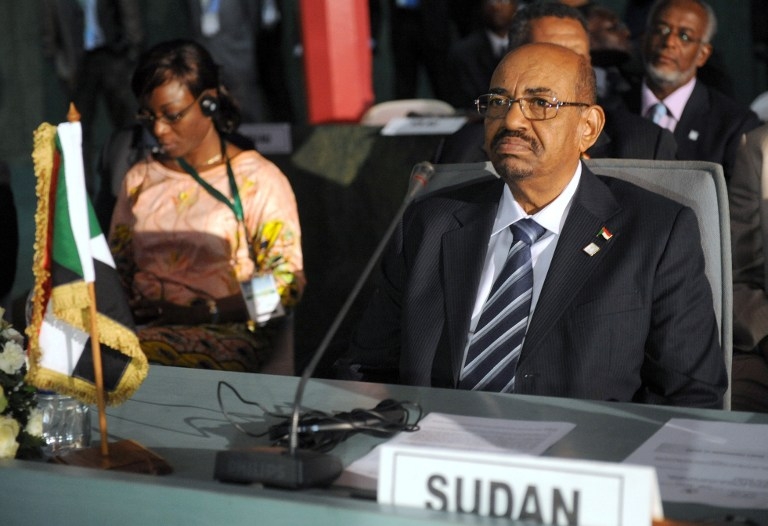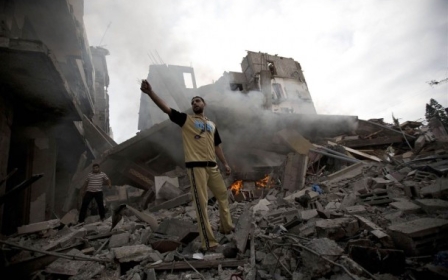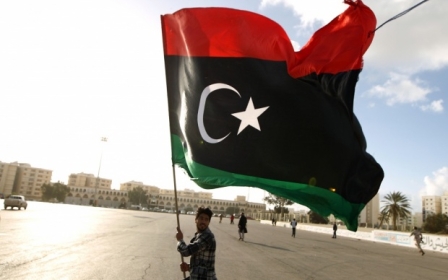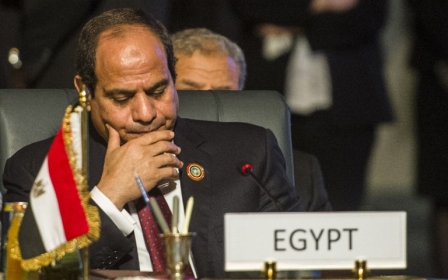South Africa bans Sudan president from leaving after arrest call

A South African judge on Sunday barred Sudanese President Omar al-Bashir from leaving the country after the International Criminal Court called for him to be arrested at a summit in Johannesburg.
Bashir, who is wanted for alleged war crimes, crimes against humanity and genocide in the Darfur conflict, mostly travels to countries that have not joined the ICC, but South Africa is a signatory of the court's statutes.
The ruling was the first time any court has prevented a head of state from leaving a country following a request by the ICC, but Sudanese officials remained defiant, insisting Bashir would return home on schedule.
"It is difficult to give details of President Bashir's timetable, but he will return when the main session is over. This could be today or tomorrow. I will not go into the details," Sudan's State Minister of Foreign Affairs Kamal Ismail said at a press conference.
"Until now, things are normal and there is no risk to his excellency the president," Ismail said.
Sunday's ruling came as a result of an urgent application filed by the Southern African Litigation Centre, a legal rights group, asking authorities to arrest Bashir.
"President Omar al-Bashir of Sudan is prohibited from leaving the Republic of South Africa until the final order is made in this application," Judge Hans Fabricius said in his ruling.
"The respondents are directed to take all necessary steps to prevent him from doing so."
Despite the arrest calls, Bashir joined a group photograph of leaders at the summit.
Wearing a blue suit, he stood in the front row for the photograph along with South African host President Jacob Zuma and Zimbabwe's President Robert Mugabe, who is the chair of the 54-member group.
"We will leave on time as scheduled," Sudan Foreign Minister Ibrahim Ghandour told AFP.
"We are not abiding with any... decision of any court. We are here as guests of the government of South Africa. Assurances have been made by that government."
Ghandour joined other critics of the ICC, saying it was a court that targets African leaders.
"President Bashir is a leading president, a member of the summit of the African Union and will continue attending the summits wherever they are being held inside Africa," he said.
Arrest warrants
The ICC called on South Africa "to spare no effort in ensuring the execution of the arrest warrants" against Bashir.
It added that South Africa diplomats had been pressed last month to arrest Bashir if he attended the summit, but that they had replied they faced "competing obligations" over the issue.
Bashir, 71, seized power in Sudan in an Islamist-backed coup in 1989.
The ICC indictments relate to the western Sudanese region of Darfur, which erupted into conflict in 2003 when ethnic insurgents launched a campaign against Bashir's Arab-dominated government, complaining of marginalisation.
Khartoum unleashed a bloody counter-insurgency using the armed forces and allied militia.
The United Nations says 300,000 people have been killed in the conflict and another 2.5 million forced to flee their homes.
Khartoum, however, disputes the figures, estimating the death toll at no more than 10,000.
"South Africa has an obligation to arrest him," Johannesburg-based rights lawyer Gabriel Shumba told AFP.
"Failure to do so puts them in the same bracket as other African regimes who have no respect for human rights. It's actually a test for South Africa."
As Judge Fabricius gave his ruling and said the court would meet again on Monday, the summit opened five hours late with Zuma not mentioning the issue in his opening remarks.
"As a member of the International Criminal Court, (South Africa) has committed to cooperate with that court," Elise Keppler of Human Rights Watch told the ENCA news channel.
"This is an incredible moment for South Africa to do the right thing and to render al-Bashir to the International Criminal Court.
"It's quite possible that al-Bashir could in fact be taken into custody before he leaves the country."
The South African government and African Union officials made no comment on the court ruling.
In a separate application last week, the South African Muslim Lawyers Association (MLA) filed a request for the arrest of Egyptian President Abdel Fattah al-Sisi who had been scheduled to attend the same summit - but cancelled soon after the association's request was publicised.
MLA representatives said they believe Sisi has committed war crimes and crimes against humanity since coming to power in a 2013 military coup that toppled former President Mohamed Morsi, Egypt’s first freely elected president.
“We believe al-Sisi committed war crimes and crimes against humanity for the horrendous killings that resulted from the coup in Egypt,” attorney Yousha Tayoub, an MLA member, told Anadolu Agency.
An Egyptian presidential source confirmed to AA that Sisi would not be attending the summit and that Prime Minister Ibrahim Mehleb would lead Egypt’s delegation to the meeting.
In 2013, the South African government had vocally criticized Morsi’s ouster and the subsequent crackdown on political dissent waged by Egypt’s army-backed government.
New MEE newsletter: Jerusalem Dispatch
Sign up to get the latest insights and analysis on Israel-Palestine, alongside Turkey Unpacked and other MEE newsletters
Middle East Eye delivers independent and unrivalled coverage and analysis of the Middle East, North Africa and beyond. To learn more about republishing this content and the associated fees, please fill out this form. More about MEE can be found here.




